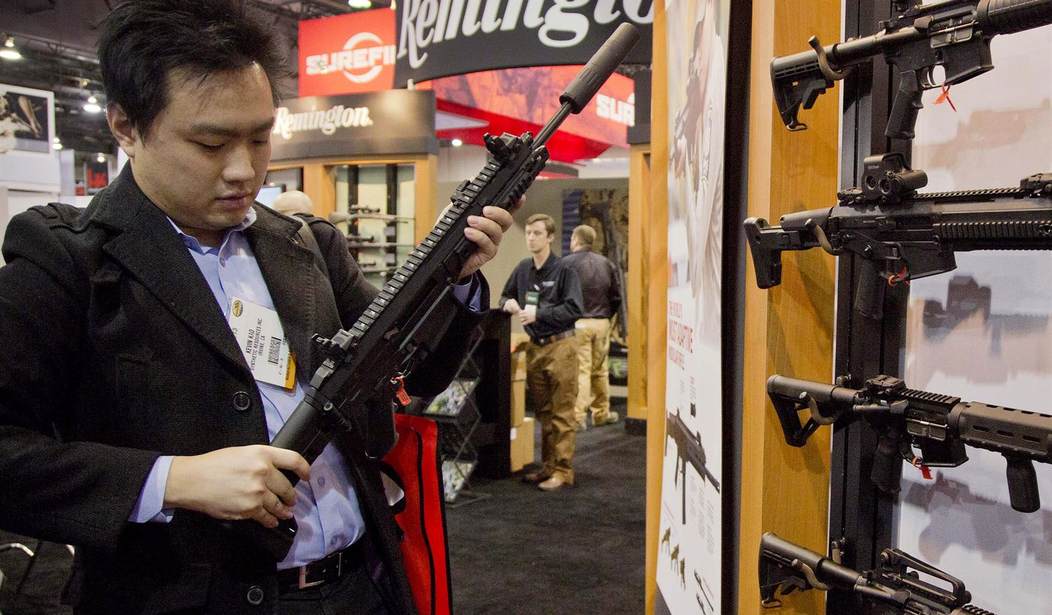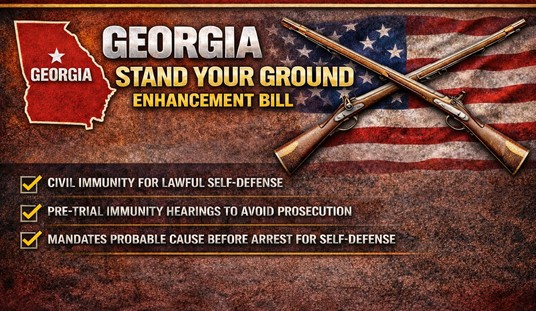Generally speaking, I really love my job. I get to talk to interesting people, cover an issue that I’m passionate about, and can maybe even make a difference every once in awhile in terms of keeping bad laws off the books and putting good laws in place.
One of the few downsides, however, is having to subject myself to a lot of the dumb arguments made by the gun control lobby and their allies in the media and academia. The latest? A new paper by two law professors at the University of Oklahoma and the University of Houston who claim that a lack of gun control laws is fueling what they call a “small arms race” across the country.
On November 19, 2021, Kyle Rittenhouse was acquitted of homicide charges stemming from his killing of two people—Anthony Huber and Joseph Rosenbaum—at a protest of police violence in Kenosha, Wisconsin. Rittenhouse had armed himself and traveled to the protest, purportedly to defend Kenoshans’ property against looting. The acquittal sparked substantial public outrage about the state of gun laws and about the legitimacy of the criminal justice system more generally. In a similar case, Travis McMichael, Gregory McMichael, and William Bryan were charged with murdering Ahmaud Arbery in Brunswick, Georgia. There, the defendants believed that Arbery was engaged in criminal activity and pursued him with a gun. When Arbery took action to protect himself, Travis McMichael shot and killed him. Here too, many were concerned that an acquittal would lead to greater vigilantism. And while the jury ultimately convicted, Georgia law would have also allowed acquittal in a similar or even identical case. Such cases have raised public concern that certain states’ gun-use and self-defense laws effectively invite malicious individuals—including vigilantes and white supremacists—to kill with impunity.
Funny how both the acquittal of Kyle Rittenhouse and the conviction of the McMichaels and William Bryan are both evidence of the need for more gun control laws, according to the professors. I’m particularly amused by the statement that Georgia law could have led to an acquittal, because that’s how the law works in virtually every criminal case that goes to trial. Juries have the option of finding defendants guilty or not guilty, and the fact that they choose between those verdicts based on the evidence presented isn’t in and of itself a sign that we need more or less laws.
That’s just tip of the iceberg of inanity found within the paper unfortunately. Things get even worse when the professors craft a straw man argument (actually a straw men confrontation) in an attempt to demonstrate why new restrictions on our right of self-defense are needed.
The authors create a scenario of two men, Lee and Jesse, both of whom are sporting firearms on hip holsters. As one man approaches the other late at night, they both grow nervous. Although each man has benign intentions, they perceive one another as a threat.
Eventually in this vignette, one says to the other: “Stop, I have a gun. I will shoot,” and the other responds “Don’t try anything. I’m also armed.”
The two enter into a stand-off and since force is mentioned, neither retreat, and as one person prepares to shoot, the other reacts by preparing to shoot even faster until the arms race results in deadly violence.
As I’m sure you noticed, this scenario bears absolutely no resemblance to either the Rittenhouse case or the murder of Ahmaud Arbery. In fact, it doesn’t remotely resemble the circumstances of the vast majority of shootings in this country. Most homicides do not involve two strangers shooting at one another, for example. About half of all homicides are perpetrated by an “acquaintance” of the victim, and many of these incidents are drug-related in some way. In fact, we just wrote about recent research showing that shootings and homicides were much more frequent in areas where open-air drug markets were also present, a scenario not covered by the professors’ imaginary friends Lee and Jesse.
Let’s also not forget the fact that up until 2020, when the double whammy of COVID-related court closures/emptying of jails and the riots/defund the police aftermath sent homicide rates soaring, violent crime had been declining for about thirty straight years, and was at its lowest level in more than half a century. That’s a crucially important fact, but it’s also completely ignored by the authors because it cuts against their conclusion: we need more gun control laws to keep us safe.
All practicable solutions involve breaking the cycle of escalation by imposing penalties on escalatory acts by one or more actors. Such penalties reduce actors’ access to self-defense in the short run while generating a less dangerous equilibrium for everyone in the long run. Because access to self defense is at the core of the Second Amendment, we explore the potential constitutional consequences of our findings. We argue that the Second Amendment, properly understood, must sometimes allow governments leeway to make self-defense harder. At a minimum, such interventions must be constitutional when the resulting equilibrium makes society, on net, significantly safer than the old one.
Got that? We have to reduce “access to self-defense” (i.e. our right to keep and bear arms) in order to make everyone safer in the long run. And what “interventions” do the authors suggest? Everything the repeal of Stand Your Ground laws to making guns more expensive to own in order to cut down on the number of legal gun owners.
Considering the fact that homicides are soaring in places like New York City, where there are few people lawfully carrying a gun, no Stand Your Ground law, and no easy access to legally purchase a firearm, I don’t think the professors’ have a clue about what actually works to bring down crime rates. Then again, I don’t think that’s their real intent. They’ve created a narrative that fits their foregone conclusion that guns are bad and people shouldn’t own them. And while they’re certainly entitled to their opinion, thankfully the number of Americans who disagree seems to be growing by leaps and bounds.









Join the conversation as a VIP Member